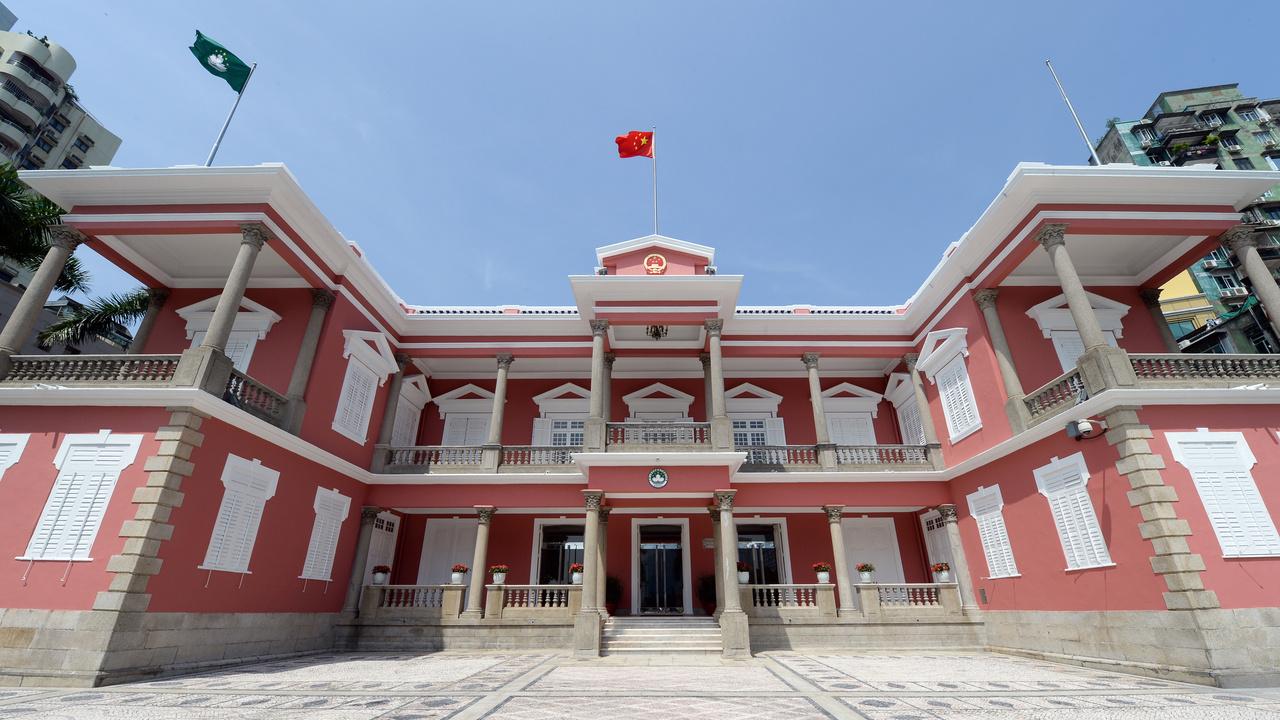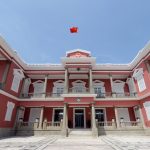
The Government has proposed a six-pronged approach to use of a 10-billion-pataca fund that aims to boost financial support to the community and help it ride out adversities linked to the COVID-19 pandemic.
The plan, part of the city’s second round of financial relief countering the economic effects of COVID-19, proposes to offer additional support to a variety of groups, i.e. local employees, businesses, self-employed individuals, and the general public.
The Secretary for Economy and Finance, Mr Lei Wai Nong, today announced the specific proposals relating to the fund, during a regular press conference regarding Macao’s effort in response to COVID-19.
The Government has formulated those proposals in view of how Macao’s economy has been affected by the recent entry restriction measures adopted respectively in Hong Kong and Guangdong Province.
The Government has also taken into consideration developments abroad relating to the COVID-19 pandemic, and how authorities overseas were dealing with their respective local adversities. Macao’s proposals were made after thorough analysis of suggestions from community members regarding how to ensure employment, boost the economy, and enhance the livelihoods of local people.
Details of the six-pronged approach to using the 10-billion-pataca fund are as follow:
1. Subsidy for employees
- Eligible taxpayers will be entitled to a monthly grant of 5,000 patacas for a period of three months. The number was based on the median monthly income in 2019 of employed Macao residents, namely 20,000 patacas. The subsidy was designed to cover 25 percent of the 2019 median monthly income.
Two categories of taxpayer are not eligible for the subsidy: those who are entitled to receive a rebate of 20,000 patacas – the ceiling of rebate on personal income tax – for the 2018 fiscal year; and people working for public bodies.
2. Grants for individual self-employed professionals
- Group 2 Taxpayers – i.e. taxpayers who are self-employed professionals – will be entitled for a grant ranging from 15,000 patacas to 200,000 patacas, depending on the number of employees hired;
- Lessees of wet market stalls, holders of hawker licences, and holders of tricycle rickshaw licences will each be able for a grant of 10,000 patacas;
- Drivers leasing a taxi will each be entitled to a grant of 10,000 patacas;
- The respective expiry dates of existing limited-term taxi licences will be extended for a six-month period; vehicle inspection due dates will be extended for a six-month period for those taxis with unlimited-term licences;
3. Subsidies for businesses
- Eligible companies will be entitled to a grant ranging from 15,000 patacas to 200,000 patacas, depending on the number of employees hired;
- The maximum in subsidy grant that can be assigned to companies covered by the same taxpayer identification number will be 1 million patacas;
- Any company receiving Government grants that then – within six months of such receipt – lays off employees without justified reason, will be required to refund such grant in proportion to the level of such lay-offs.
- Public utility companies – those providing electricity, water, natural gas and other fuels – will be excluded from the support measures. In addition, entities respectively providing the following services will not be covered: public bus operators; the city’s Light Rapid Transit system operator; public telecommunications firms; financial service businesses; formal education institutes and higher education institutes; social service agencies; and gaming companies.
4. Interest-subsidy scheme for self-employed individuals in relation to relevant bank loans
- Self-employed individuals (Group 2 Taxpayers) will be granted a subsidy on any payable interest linked to relevant bank loan liabilities that have a maximum interest rate of 4 percent attached to them. Such subsidy will be up to a maximum amount of 100,000 patacas and cover a maximum repayment term of two years. The maximum amount of interest subsidy will be set at 8,000 patacas.
5. Paid occupational training
- Unemployed local residents can join Government training courses and be entitled to a subsidy of 6,656 patacas. Upon completion of training, they will be offered employment-matching services;
- Employed local residents can join Government training courses – aimed at broadening their skills and capabilities – upon the recommendation of their employer. Each employer will be able to recommend a maximum of five employees.
Employers will be granted a subsidy of 5,000 patacas for each employee they recommended for such Government training when carried out during that employee’s working hours. This will be on the basis that the salary of the particular employee will not be reduced by the employer due to the work time training.
Employers can also make recommendations regarding employees who are subject to ‘no paid leave’ status, in order for them to attend Government training. Upon course completion, relevant employees will be granted a subsidy of 5,000 patacas.
Employers will not be allowed to subject their employees to ‘no paid leave’ status in order for them to attend Government training.
6. Second round of Consumption Subsidy Scheme
- Each resident will be able to register for an e-voucher with a value of 5,000 patacas. Such e-vouchers will be accepted by businesses from August to December this year.
Under the first round of the Consumption Subsidy Scheme, each Macao resident will be allocated a 3,000-pataca e-voucher, the value of which must be redeemed within a window running from May to July.
The Government is striving to speed the legislative procedures for implementation of the measures. More details regarding each measure will be announced in a timely manner.


